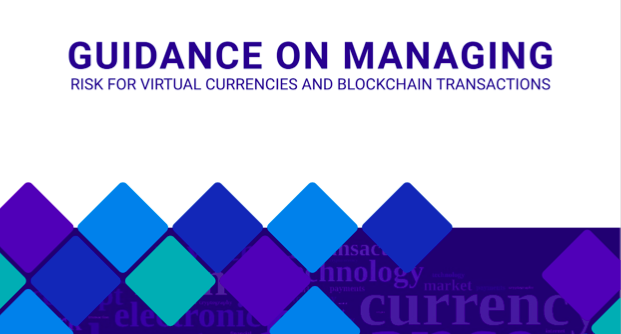
Coinfirm and its partners are working on Guidance on Managing Risk for Virtual Currencies and Blockchain Transaction. Here is some indications of what we plan to do.
Join our industry working group - one that offers true opportunity to the evolution of the most promising technological innovation in history [email protected]
It is increasingly apparent that virtual currencies, which largely operate outside of the scope of the current regulated financial system, will become even more popular method of paying for goods and services and transferring value in the economy.
Total Value: $170 Billion
Daily Volume: $3,5 Billion
Users: Over 50,000,000 users worldwide
Example: Netherlands Poll: 135k households (2%) own crypto
Over 1 000 ICO has been made
Total Value: $3 Billion
Coinfirm has been working to use its leadership position in the industry to build the compliance standards for blockchain globally.
We have been working on a Guidance on Managing Risk for Virtual Currencies and Blockchain Transactions.
Our hope is that by providing practical guidance and insights in to how to manage and mitigate some of the inherent risks of the blockchain, we can promote a global standard of understanding and awareness.
We believe that in a globalised market that has been forged through continuing technological development, it is important that there is a mass adoption of consistent standards, so that we do not have pockets of ‘non-compliance’ with international best practices.
Extract from the introduction to the Guidance.
The technology offers a great basis for new ways to achieve improved outcomes, both in terms of working efficiency and in global payment systems. But with this new and exciting opportunity, comes a shared responsibility to ensure that the features, benefits and opportunities that this innovation offers, are managed according to well-established principles of good conduct, best practice, laws and regulations.
At first blockchain was considered by many to be nothing more than a ‘disruptor’, but regulators have now begun to address these challenges with a variety of legislative approaches, however there is no global standard that is in place and that can be relied upon to guide users on how blockchain-based technologies should be managed.
In this document, we hope to provide further help and guidance on how to manage the financial crime risks associated with blockchain activity. We have defined financial crime to include offences such as fraud, money laundering and terrorist financing.
We hope that this document, and the procedures detailed within it, may help to guide users and the ‘guardians’ and regulators of the industry, so that they do not inhibit the growth, development and innovation of virtual currency. We believe that placing undue constraints on the use of virtual currency, driven by prejudicial fear and ignorance, will harm and impair the evolution of perhaps the most promising technological innovation in history. One that offers true global social and economic opportunity.
Virtual currencies are widely described as being a digital representation of value that is not issued by a central bank or a public authority, nor is it attached to a legally established currency. Whilst it does serve as a medium of exchange, and unit of account, importantly, it does not possess the legal status of currency or money. This means that it does not therefore have to be accepted by consumers, firms or public authorities. Virtual currencies however continue to be attractive to enthusiasts, users and a growing number of retail organisations, yet there remain some vulnerabilities.
Coinfirm Guidance on Managing Risk for Virtual Currencies and Blockchain Transactions
“...by design, bitcoin addresses, which function as accounts, have no names or other customer identification attached, and the system has no central server or service provider. the bitcoin protocol does not require or provide identification and verification of participants or generate historical records of transactions that are necessarily associated with real world identity. there is no central oversight body, and no AML software currently available to monitor and identify suspicious transaction patterns. law enforcement cannot target one central location or entity (administrator) for investigative or asset seizure purposes (although authorities can target individual exchangers for client information that the exchanger may collect). it thus offers a level of potential anonymity impossible with traditional credit and debit cards or older online payment systems, such as PayPal.”
Whilst aspects of this assessment remain true, technological developments and progress since June 2014 means that there are now opportunities to start to shine a light in some of the darkest corners of blockchain technology, and therefore virtual currency activities. The purpose of this paper is to:
a) Help users, service providers and operators understand more about how the virtual currencies system risks can be identified and managed: and
b) Help those responsible for overseeing the development and regulation of virtual currencies to understand more about the risks posed by virtual currencies and the measures that can be taken to mitigate financial crime risk, so that this can help to inform an appropriate and effective compliance and regulatory response.
The paper is organised into the following sections:
• Section I: Overview of Virtual Currencies and Proportional Risk Management
• Section II: International Regulatory Overview
• Section III: Typologies of Financial Crime Risks Relating to Virtual Currencies
• Section IV: Managing the Risks of Virtual Currencies
• Glossary and Appendices
Our hope is that by providing practical guidance and insights in to how to manage and mitigate some of the inherent risks of the blockchain, we can promote a global standard of understanding and awareness. We believe that in a globalised market that has been forged through continuing technological development, it is important that there is a mass adoption of consistent standards, so that we do not have pockets of ‘non-compliance’ with international best practices.
Hi! I am a robot. I just upvoted you! I found similar content that readers might be interested in:
https://www.finextra.com/pressarticle/70775/sei-teams-up-with-uk-blockchain-and-regtech-startup-coinfirm